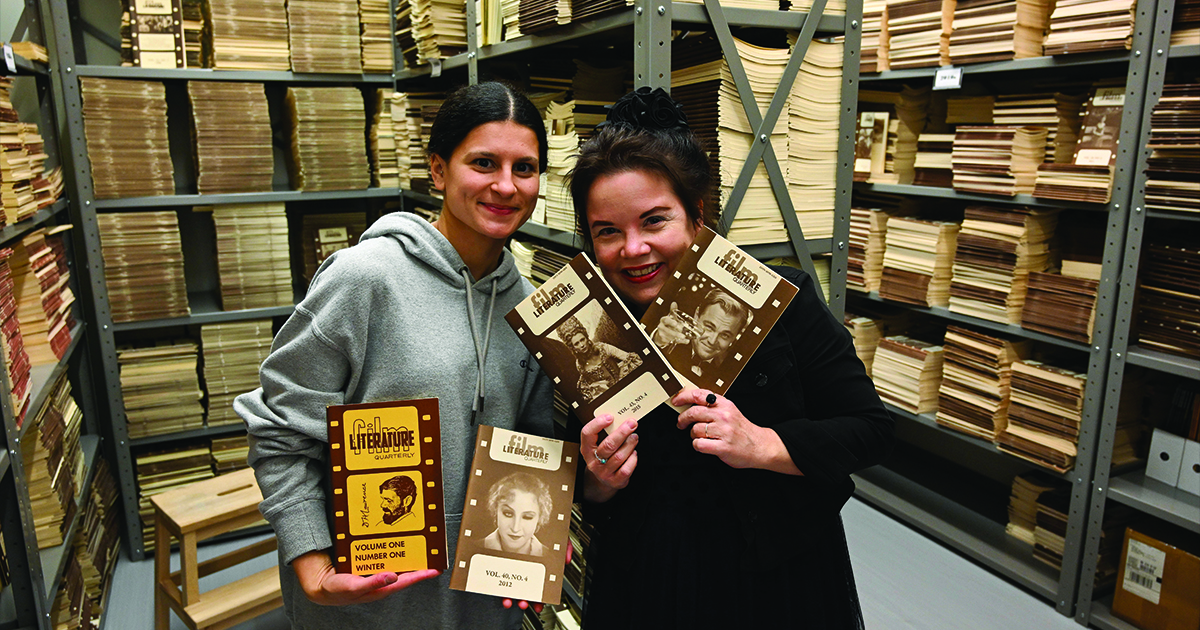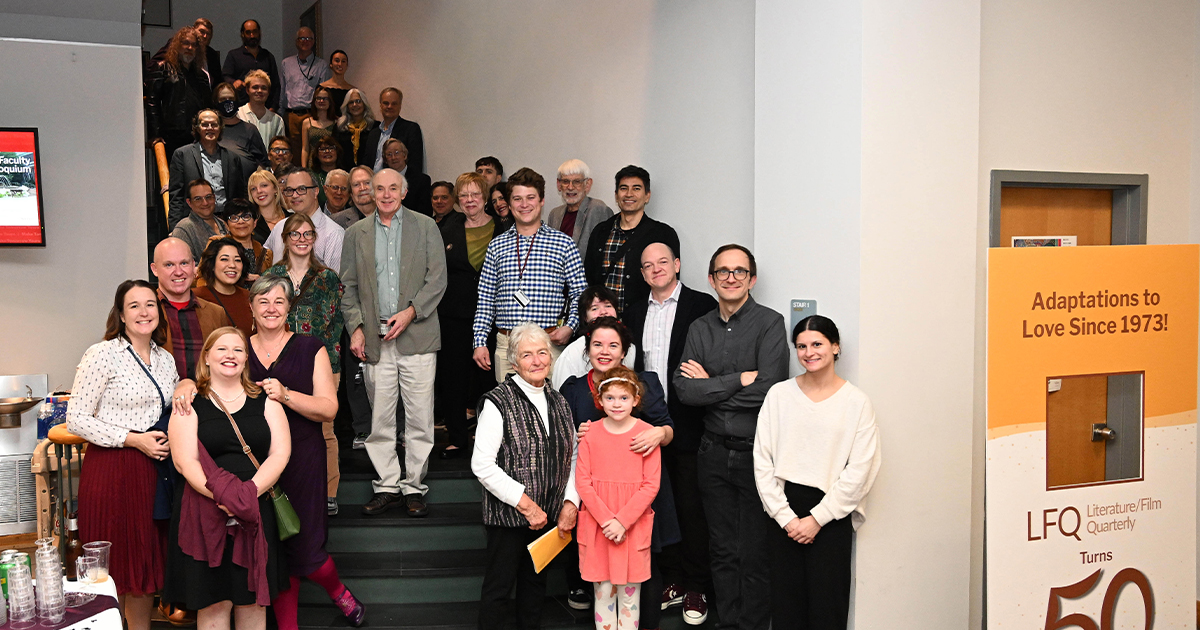'Literature/Film Quarterly' Celebrates 50th Anniversary at SU
BY SU Public Relations
SALISBURY, MD---A decorative infinity symbol given away to attendees may have been the most fitting gift during the celebration of the 50th anniversary of the internationally recognized journal Literature/Film Quarterly (LFQ) at Salisbury University.
There are infinite ways adaptation – the base of the journal – can be interpreted, and there are seemingly infinite ways that LFQ has needed to adapt over its 50 years to keep up with the film industry and its academic following.
“The journal started out being quite traditionally based in film adaptations of revered literature, and that’s where it needed to begin,” said Dr. Elsie Walker, the publication’s current editor and SU professor of English.
“In 1973, when LFQ started, people didn’t necessarily have respect for cinematic medium. Now, of course, cinema is over 100 years old, and cinematic scholarship is an industry unto itself. So, along with that, LFQ has changed and our ideas of how to apply the concept of adaptation have become much more expansive.”
A half-century ago, when co-founders Jim Welsh and Tom Erskine began the journal, they could have had no idea how much of a worldwide success it would become.
“I think that Jim Welsh and Tom Erskine were visionaries,” said Walker. “They built this from absolutely nothing. And they built it out of love, and I think, ultimately, that’s where the best work comes from. It’s driven by a sense of belief, purpose and faith that other people will care to hear it. I think they are the ones to thank for the following we’ve had in print in more than 30 countries.”
LFQ and its global readership ultimately are why Walker is at SU and the U.S. In the late 1990s, she was a reader of the journal during her graduate studies at the University of Auckland, New Zealand, and used it in her studies. She was first published in it in 2000.
In 2003 when she saw an SU job posting, which included LFQ editorial duties, she jumped at the opportunity. She has guided the publication for the past 20 years, into its current iteration as a fully online journal, which has only expanded its reach.
Walker is far from the only scholar who has learned about SU thanks to the journal.
“I think LFQ has fostered an enormous amount of goodwill for Salisbury University,” she said. “Some of the most distinguished film scholars began in our journal. Not only that, but it’s a place where both up and coming scholars and distinguished authors have a voice, and that’s something our staff has worked on.”
In the 50th anniversary edition, two students mentored by established scholars are published, as the editorial staff of Walker, associate editor Ryan Conrath, consulting editor David Johnson and the rest of the staff look to bring new voices and new perspectives to the world of film adaptation’s scholarly works.
The importance of such a journal being located on the relatively small campus, some 3,000 miles from Hollywood, is not lost on Walker.
“It matters that we’re housed here because it shows that being a Research I institution is not a requirement for being a hub of exceptional and groundbreaking research,” she said.

“What you need is an infrastructure. You need people who are willing to step up. You need a whole team of contributing editors who have different expertise. You need the support of an institution that will give credit to faculty for working on it. You need a space to make the work happen. And we have that here at SU.”
The first 50 years of LFQ has see its own changes and adaptations from strictly a study of great literature – beginning with Shakespeare – and its adaptation to film, to the study of adaptations from other works, and other media, as well as a broader definition of film. But what will the next 50 years hold?
“I see short- and long-term change,” said Walker. “The short term would be raising awareness of the publication here at home, drawing more students into our publication with mentorship from expert faculty, diversifying our contents and continuing to open up that concept of adaptation to infinity.
“I also see us continuing to expand upon the formats of our submissions. I don’t see the field of adaptation becoming any smaller. In fact, I see it potentially growing forever. But the way we might communicate scholarship will need to keep changing.”
Walker sees a day when more video essays are included in the journal, along with podcasts and other audio and video items.
The possibilities, she said, are endless.
To learn more about LFQ, visit the journal’s website.
Learn more about SU and opportunities to Make Tomorrow Yours at www.salisbury.edu.

